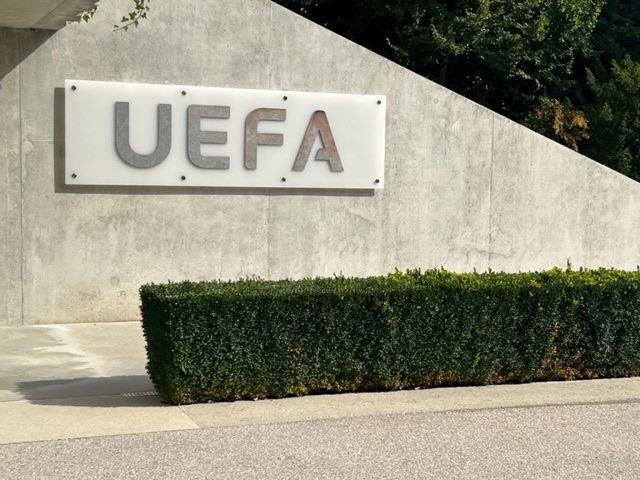September 28 – The anticipated backlash against UEFA’s decision to re-instate Russian under-17 teams into its international tournaments has started with Ukraine saying it will boycott any European youth competition that includes Russia and other countries lending their support.
Ukraine’s call for backing was quickly answered by Sweden which is due to host the U17 girls Euro finals tournament next May but says it will not let Russia take part if it qualifies.
“It is the opinion of the Executive Board that Swedish national teams (senior and youth) should continue to not play matches against Russia, neither in Sweden nor abroad,” the Swedish Football Association said in a statement.
The English FA has already said it won’t play Ukrainian youth teams while Polish Football Association president Cezary Kulesza said he was ‘surprised’ by UEFA’s decision.
“If Russian national teams are allowed to participate in the competition, our national teams will not compete with them. This is the only right decision,” Kulesza said on X.
UEFA’s announcement on Wednesday to ease its blanket ban on Russian teams by allowing under-17 teams to compete is the first and so far only softening of its stance since the Russian invasion of Ukraine.
But the move is causing a growing divide, with both the boys and girls under-17 finals scheduled for next year.
“UAF confirms that we will not take part in any competitions with the participation of Russian teams,” the Ukraine federation said, “and appeal to other UEFA member associations to boycott possible matches with the participation of teams from the Russian Federation.”
“We strongly urge UEFA to review this decision and leave in force the previous decision on the complete exclusion of any teams from the Russian Federation from participation in international competitions.”
UEFA argues that “children should not be punished for actions whose responsibility lies exclusively with adults” but the Ukraine federation said letting even youth teams return during the conflict “tolerates Russia’s aggressive policy.”
The return of Russian teams to competitions “in the midst of hostilities conducted by the Russian Federation against Ukraine is groundless and such that it tolerates Russia’s aggressive policy,” it charged.
UEFA’s narrative was very much around ‘children’, but with U17 players (who could be aged 17) potentially likely to come from Russian Premier League teams and who could have made their debuts in those teams, the definition of ‘children’ is open to interpretation.
Contact the writer of this story at moc.l1714944066labto1714944066ofdlr1714944066owedi1714944066sni@w1714944066ahsra1714944066w.wer1714944066dna1714944066

